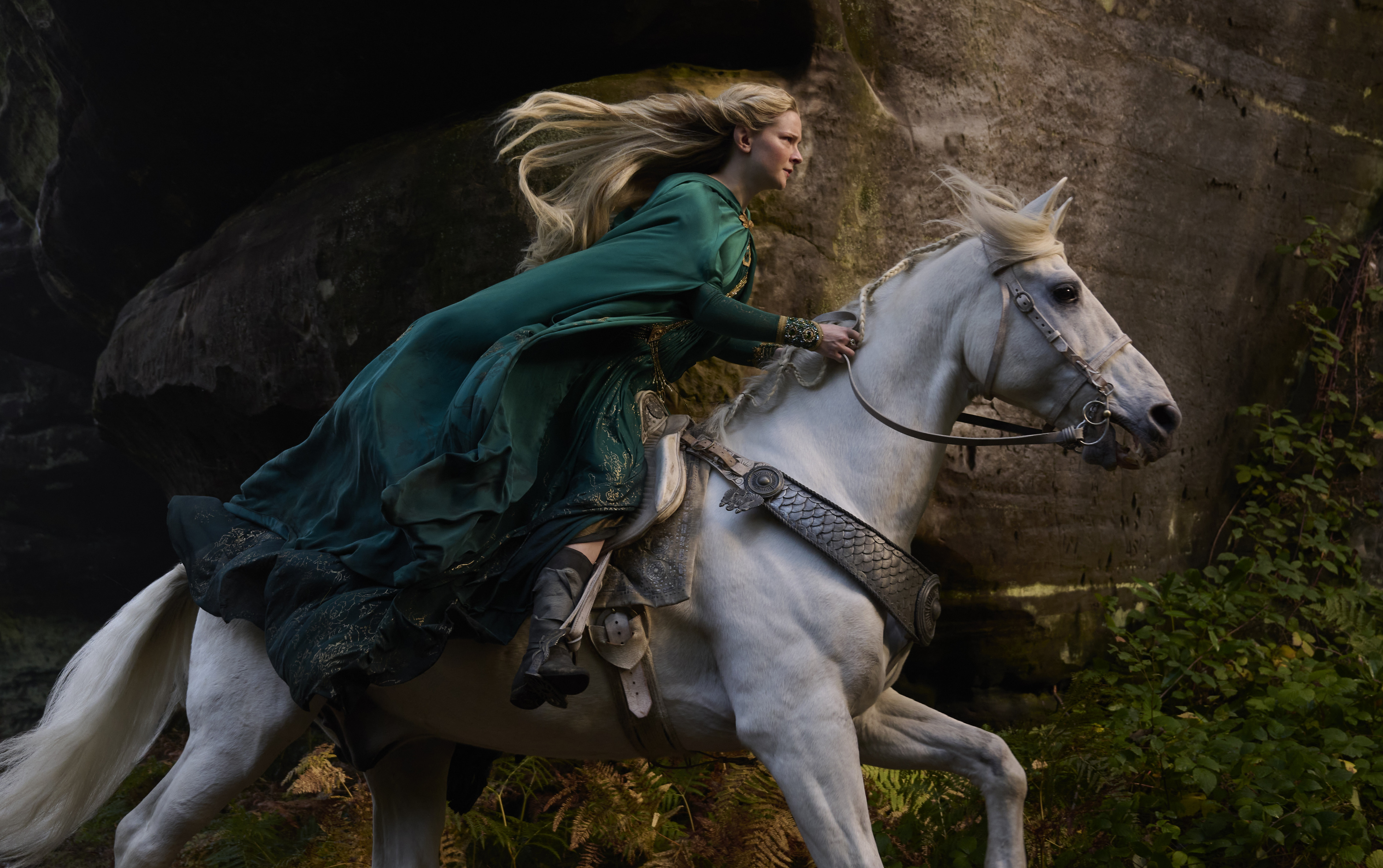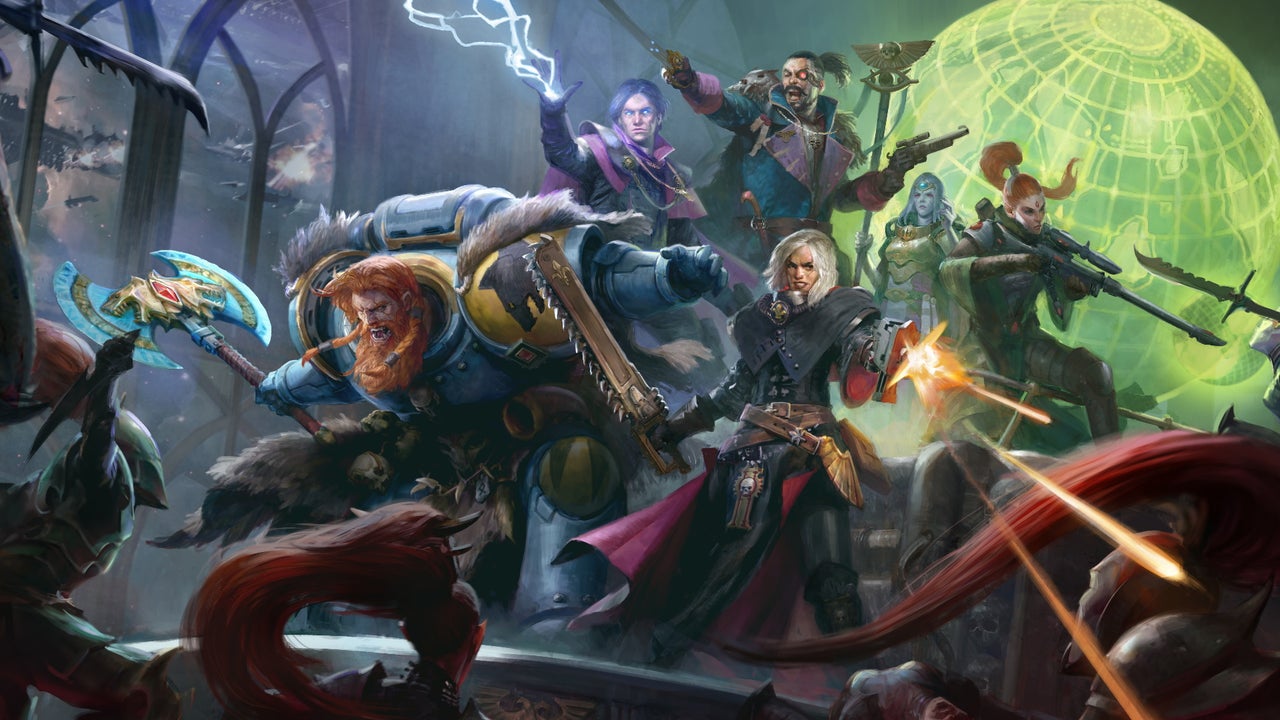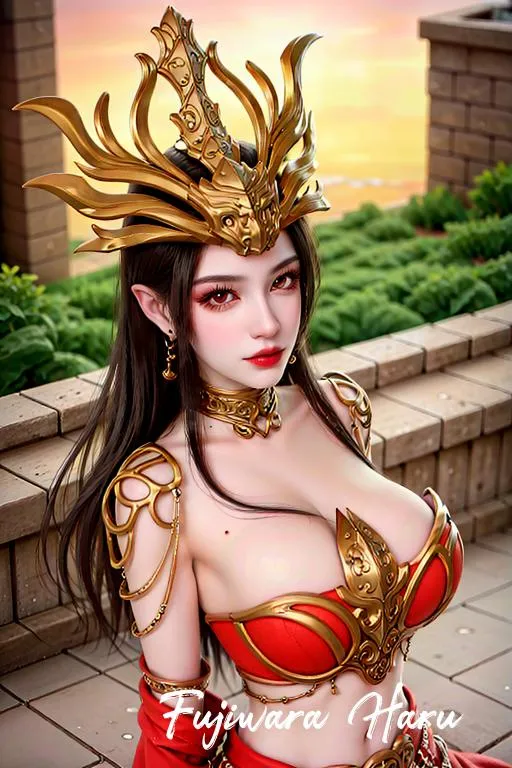
The debate over what matters more — fidelity to J.R.R. Tolkien’s original Middle-earth canon, or telling a story that works in its own right — burns hotter than the fires of Mount Doom whenever fans discuss adaptations of The Lord of the Rings. Prime Video’s The Lord of the Rings: The Rings of Power has epitomized this push-pull since season 1 debuted back in 2022, and season 2 remains firmly on trend. The second season’s three-episode premiere makes a dwarven vault’s worth of changes to Tolkien’s lore that will rankle purists. Some of them work in context. At least as many don’t. Bottom line? The Rings of Power season 2’s first three episodes are more of the same — with all the good and not-so-good that entails.
[Ed note: This story contains spoilers for The Lord of the Rings: The Rings of Power season 2, episodes 1-3.]
First, the good. Showrunners J.D. Payne and Patrick McKay have seemingly taken on board the feedback about season 1’s sluggish start; opening with a flashback in which Sauron (played in his OG form by Slow Horses’ Jack Lowden) gets the pincushion treatment from Adar and his orcs is certainly attention-grabbing. Sure, Adar’s rebellion (like Adar himself) is one of Payne and McKay’s inventions, yet it serves its purpose within The Rings of Power season 2’s wider narrative. The reborn Sauron is still hiding his true agenda (and nature) behind his new “Annatar” angelic emissary glow-up. As such, someone else needs to fill the obligatory Dark Lord of Mordor role.
The same goes for the way Payne, McKay, and the show’s wider creative team approach The Rings of Power’s titular jewelry. It doesn’t stack up with Tolkien’s writings, but it’s necessary for the drama of the piece. Season 1’s decision to jump the gun on the Three Rings’ introduction — bringing them forward from the last rings made to the first — means they can’t be the (relatively) benign bling that Tolkien described. They have to be an actively corrupting force, even without Sauron and his as-yet-unforged One Ring to infect them. Your mileage will vary on seeing the canonically chummy Galadriel, Elrond, and Gil-galad butting heads — and trading clunky, decidedly un-Tolkienian dialogue — but because of the Three, the proceedings would feel pretty limp without this conflict.

The Rings of Power season 2 also deserves props for visiting a realm that doesn’t factor much into Tolkien’s record of the Second Age (or his wider continuity, period): Rhûn. This arid environ makes its live-action debut in season 2, and if it’s slightly underutilized in these first three entries, it nevertheless breaks up the abundance of leafy havens, twisted fortresses, and the other familiar fixtures that have to date characterized Middle-earth’s landscapes. Ciarán Hinds’ Dark Wizard character — who Payne and McKay so far insist isn’t Saruman — is likewise a welcome addition, even if he is another deviation from established lore. Tolkien listed five wizards, and of these, only the Blue Wizards definitely went to Rhûn and maybe switched sides. So, unless season 2’s new Istar is a palette-swapped Blue Wizard, he doesn’t really jibe with the Middle-earth legendarium. But does it even matter? Like I said earlier, Sauron sidelining himself for the time being demands that other baddies step up, and a rogue wizard backed by a cadre of magic-infused zealots is nothing if not that.
Through this lens, you can also see the logic in continuing to truncate the Middle-earth timeline. If Payne and McKay stayed true to Tolkien’s chronology, none of the goings-on over on the island kingdom of Númenor would make it into the show. We’d get none of the political wrangling by shady chancellor Pharazôn, nor any of the apocalyptic fallout that his rise to power promises. That counts for something, since the gradual moral decay of an entire civilization — and its disaster-movie-level consequences — isn’t really something that other Tolkien adaptations have given us. Cutting this content would result in a more faithful (and focused) Lord of the Rings show, but a duller one, too. To paraphrase a line from The Return of the King, not all of season 2’s changes to canon are an evil.
there’s a downside to shrinking Tolkien’s timeline: Everything is super rushed
Some kinda are, though. The biggest offender in this regard is easily the ongoing Gandalf Stranger origin story. Tolkien devoted a handful of lines (tops) to Gandalf’s arrival in Middle-earth. His cosmic bosses ordered him to go and, after a brief crisis of confidence, he obeyed. Assuming the Stranger is indeed Gandalf (and c’mon, how can he not be?), Payne and McKay have fleshed this out into a mystery-box-style journey of discovery that feels more and more pointless with each installment. Worse, it’s just not that compelling. There’s a reason Tolkien didn’t craft a backstory for Gandalf’s original staff: Nobody gives a fuck. The Stranger and Nori’s adventures in The Rings of Power season 2 won’t change that, if the first three episodes are any guide.
Speaking of things that aren’t compelling, that’s a pretty adequate summary of season 2’s Khazad-dûm and Pelargir subplots. Both call on flashy window dressing — a volcanic earthquake and marauders from Mordor — to jazz up unengaging, and disorientingly modern, family dramas. It’s hard to imagine Tolkien penning the toothless father-son feud between Durins III and IV, much less the “you’re not my dad!” scene we get between Arondir and Theo. Isildur’s meet-cute with Nia Towle’s Estrid also falls under this umbrella, although it at least teases skulduggery further down the line. Hopefully, this is a sign that Khazad-dûm and Pelargir will hit their stride soon; Durin III’s incoming Ring of Power and Theo getting nabbed by an unseen force are further signs they might. For now, though, they’re only marginally more essential to The Rings of Power season 2’s plot than the Stranger’s Rhûn road trip.

It also turns out there’s a downside to shrinking Tolkien’s timeline: Everything is super rushed. Sauron manipulates Celebrimbor into whipping up more rings with almost cartoonish ease. It makes the elf-smith seem petty and gullible, rather than a well-intentioned guy desperate to prove himself. Lip service is paid to Celebrimbor’s lifelong fixation with his grandfather Fëanor’s legacy; however, it’s not quite enough to justify him selling out his principles with some (poorly telegraphed) psychological manipulation. Similarly, Pharazôn’s power play against Míriel needed more time to bake. Sure, revolutions often move fast, but Míriel is ousted (by a great eagle…?) so quickly that it doesn’t really feel earned. It makes me wonder whether the Downfall of Númenor would’ve been better told as its own, dedicated miniseries. But you can’t do that without drastically diminishing The Rings of Power’s scope and intrigue.
This highlights the biggest problem with season 2’s first three episodes (and The Rings of Power more broadly): Its central “War of the elves and Sauron” premise may not be as narratively interesting or thematically rich as Payne and McKay think it is. Tolkien was incapable of dull world-building (even his fictional genealogies are a surprisingly gripping read), and there’s heaps of cool stuff associated with the forging of the Rings of Power. Yet he also recounted it in paragraphs, not pages. It wasn’t The Lord of the Rings’ main course; it was a side salad — and Tolkien knew that. It’s why he invested his energy in the Fellowship’s quest — with its goal-driven storytelling (destroy the Ring) and thematic clarity (friendship, sacrifice, hope, and more besides) — instead. Three episodes into its second season, The Rings of Power still lacks this specificity. Despite Sauron’s return last season, the mission to defeat him remains vaguely defined and oddly devoid of urgency. Meanwhile, the bigger ideas underpinning it all (unity over division, letting go of the past, and the dangers of hubris) are barely better sketched out.
But, incredibly, none of this is enough to outright tank The Rings of Power season 2 episodes 1-3. Despite their various shortcomings, they’re inexplicably watchable — and they ultimately position the second season mostly where it needs to be. By the end of episode 3, more rings are coming, and with them, the promise that more story threads will come together in the future. The scheming of Adar, the Dark Wizard, and Pharazôn should keep those that don’t bubbling along nicely regardless. Will it be the perfect Lord of the Rings adaptation? Far from it. But based on what we’ve seen, it’ll be just good enough — and true enough to its source text — to keep all but the most die-hard Tolkien truthers tuning in each week.
Source:https://www.polygon.com/lotr-rings-of-power/445522/lord-episode-1-3-review-season-2-new



